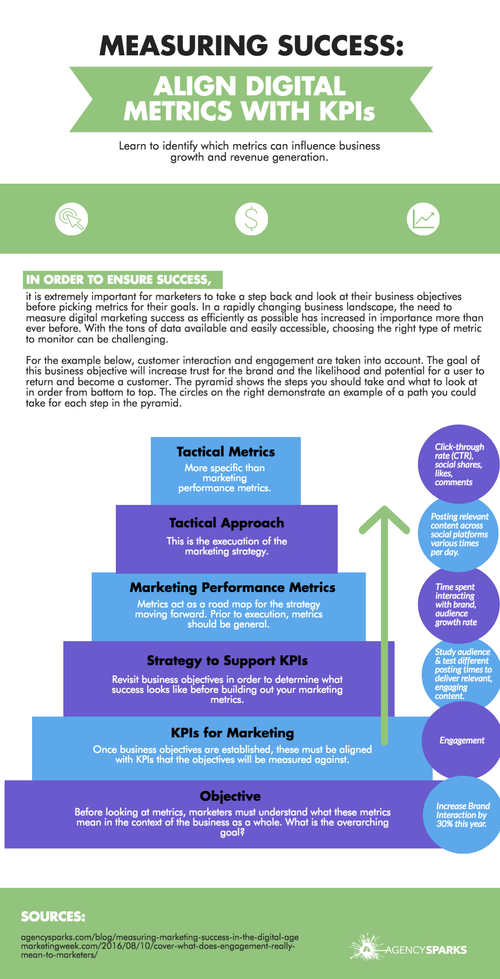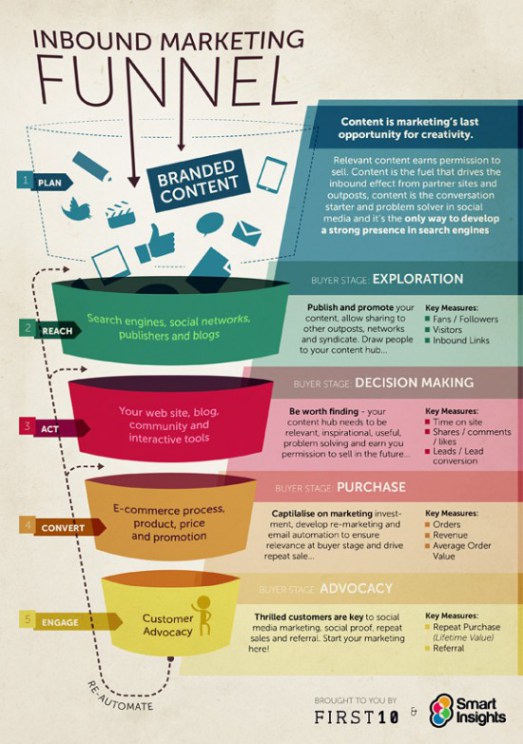Uncover the secret to measuring content marketing success with these essential KPIs – are you tracking the right metrics?

Image courtesy of via DALL-E 3
Table of Contents
Introduction to Content Marketing KPIs
Content marketing is a strategic approach that focuses on creating and distributing valuable, relevant, and consistent content to attract and retain a clearly defined audience. It is a powerful tool for businesses to engage with their customers and drive profitable customer action. However, simply producing content is not enough; measuring the success of these marketing efforts is crucial. This is where Key Performance Indicators (KPIs) come into play.
What is Content Marketing?
Content marketing is like storytelling for businesses. It involves sharing valuable information to educate, entertain, or inspire your target audience. Through blog posts, videos, social media, and other forms of content, companies can build relationships with their customers and establish themselves as industry experts.
What are KPIs?
KPIs, or Key Performance Indicators, are specific metrics that help businesses track and measure their progress towards achieving their marketing goals. These indicators provide valuable insights into the effectiveness of marketing strategies and help businesses understand what is working and what needs improvement.
Why Are KPIs Important?
Measuring the success of content marketing through KPIs is essential because it allows businesses to gauge the impact of their efforts. By monitoring KPIs, companies can assess the performance of their content, identify areas for optimization, and make data-driven decisions to improve their marketing strategies. Without KPIs, businesses would be navigating in the dark, unsure of the effectiveness of their content marketing initiatives.
Types of Content Marketing KPIs
When it comes to measuring the success of your content marketing efforts, it’s essential to understand the different types of content and the specific Key Performance Indicators (KPIs) that apply to each. By tracking these metrics, you can gain valuable insights into how well your content is resonating with your audience and driving the desired outcomes. Let’s explore the various types of content and the KPIs associated with them:
Blog Posts
Blog posts are a common form of content marketing used to provide valuable information, insights, and updates to your audience. To measure the success of your blog posts, you can track KPIs such as page views, time on page, and social shares. Page views indicate how many times your blog post has been viewed, while time on page gives insight into how engaged readers are with your content. Social shares reflect the virality and reach of your blog post across different social media platforms.
Videos
Videos have become increasingly popular in content marketing due to their engaging and consumable nature. For video content, important KPIs include views, watch time, and engagement rate. Views measure how many times your video has been watched, while watch time shows the average duration viewers spend watching your video. The engagement rate reveals how interactive and captivating your video content is to your audience.
Infographics
Infographics are visually appealing and informative content pieces that present data and information in a clear and engaging manner. When analyzing the success of infographics, key KPIs to consider are shares, backlinks, and downloads. Shares indicate how widely your infographic has been shared on social media, while backlinks show how many other websites have linked back to your infographic. Downloads reflect the number of times your infographic has been saved or accessed by users.
Engagement Metrics
In content marketing, engagement metrics are key indicators of how audiences interact with the content produced. By measuring these metrics, businesses can gauge the level of interest and involvement their content generates. Let’s delve into some essential engagement metrics that provide valuable insights into content performance.

Image courtesy of via Google Images
Comments
Comments on a piece of content can offer valuable feedback and gauge the level of audience engagement. The number of comments indicates how interactive and compelling the content is, while the quality of comments reflects the depth of audience involvement. Encouraging comments and responding to them can foster a sense of community around the content.
Likes
When audiences like a piece of content, it signifies their approval and interest. Likes serve as a quick way for users to show appreciation for the content without leaving a comment. Tracking the number of likes can help assess the overall sentiment towards the content and identify topics or formats that resonate well with the audience.
Shares
Shares play a crucial role in expanding the reach and visibility of content. When users share content with their network, it indicates that they found the content valuable enough to pass along to others. Higher shares can amplify the content’s exposure and attract new audiences. Monitoring shares can help identify the content that resonates most with users and tailor future content strategies accordingly.
Traffic Metrics
In content marketing, understanding how many people are visiting your website and interacting with your content is crucial. This is where traffic metrics come into play. Let’s delve into the important metrics that help measure the amount of traffic your content receives.
Page Views
Page views are the number of times a specific page on your website has been visited. This metric helps you understand which content is popular and driving traffic to your site. The more page views a piece of content has, the more engaging it is for your audience.
Unique Visitors
Unique visitors refer to the number of distinct individuals visiting your website within a specified time frame, regardless of how many times they visit. This metric helps you understand the actual number of individuals interacting with your content. It’s important because it shows the reach of your content beyond just the number of visits.
Conversion Metrics
Conversion metrics are essential in understanding how effectively your content is driving desired actions from your audience. Let’s delve into how content can lead to conversions and the key metrics to track in this process.

Image courtesy of via Google Images
Leads
Leads are potential customers who have shown interest in your products or services. Measuring the quality of leads generated by your content is crucial in determining the effectiveness of your marketing efforts. Tracking metrics such as email sign-ups, form submissions, or webinar registrations can give you insights into the success of your content in attracting valuable leads.
Sales
The ultimate goal of conversion is driving sales. Sales metrics indicate the direct impact of your content on the revenue generation of your business. By tracking metrics like purchases made after engaging with your content, you can measure the tangible outcomes of your marketing strategies. Monitoring sales conversions allows you to assess the ROI of your content initiatives and optimize future campaigns for increased conversion rates.
Retention Metrics
When it comes to measuring the success of your content marketing efforts, retention metrics play a vital role. Retention metrics focus on how well your content keeps your audience coming back for more. One key retention metric to track is the number of returning visitors to your website.
Returning Visitors
Returning visitors are people who have already visited your website before and are coming back for more content. Tracking the number of returning visitors can give you insights into the loyalty and engagement of your audience. When users keep coming back, it indicates that they find value in your content and are interested in what you have to offer.
Monitoring returning visitors can also help you understand which pieces of content are resonating with your audience the most. If you notice a particular blog post or video is bringing users back for more, you can tailor future content to meet their interests and preferences.
Additionally, tracking returning visitors can help you measure the effectiveness of your content in building a loyal community. The more returning visitors you have, the stronger your brand loyalty and the higher the chances of converting them into leads or customers.
By focusing on retention metrics like returning visitors, you can not only gauge the success of your content marketing efforts but also continuously improve and refine your content strategy to better meet the needs and interests of your audience.
SEO Performance Metrics
When it comes to measuring the success of your content marketing efforts, Search Engine Optimization (SEO) performance metrics play a crucial role. Understanding how your content is performing in terms of search engine visibility and organic traffic is essential for the overall success of your marketing strategy.

Image courtesy of via Google Images
Search Engine Ranking
Search engine ranking refers to the position of your content on search engine results pages (SERPs). The higher your content ranks for relevant keywords, the more likely it is to be seen by your target audience. Monitoring your search engine ranking helps you gauge the effectiveness of your SEO efforts and identify areas for improvement.
Organic Traffic
Organic traffic is the number of visitors that come to your website through unpaid, organic search results. This type of traffic is valuable as it indicates that your content is relevant and valuable to users. By tracking organic traffic, you can measure the success of your SEO strategies and assess the impact of your content on driving visitors to your site.
Social Media Metrics
Social media has become a crucial platform for businesses to engage with their audience and showcase their content. Understanding the metrics that matter on social media is essential for measuring the success of your content marketing efforts.
Followers
One key metric on social media platforms is the number of followers your account has. Followers represent the audience that is interested in your content and brand. Tracking the growth of your followers over time can indicate the effectiveness of your content strategy in attracting and retaining a loyal audience.
Social Media Engagement
Engagement metrics on social media, such as likes, shares, and comments, provide valuable insights into how your audience is interacting with your content. Likes indicate that your content resonates with your audience, while shares expand its reach to a wider network. Comments offer direct feedback and show genuine interest in your posts. Monitoring these metrics can help you understand what type of content performs best on social media and tailor your strategy accordingly.
Summary of Key Points
In this blog post, we delved into the world of content marketing Key Performance Indicators (KPIs) to measure success effectively. Let’s recap the essential points discussed:

Image courtesy of via Google Images
Understanding Content Marketing and KPIs
Content marketing involves creating and distributing valuable content to attract and engage a target audience. KPIs, or Key Performance Indicators, are crucial metrics used to gauge the performance and success of marketing efforts.
Types of Content Marketing KPIs
Various types of content such as blog posts, videos, and infographics have specific KPIs tailored to measure their success. This includes metrics like page views, engagement rate, shares, and more.
Engagement Metrics
Engagement metrics like comments, likes, and shares reflect how audiences interact with content, indicating popularity and effectiveness.
Traffic Metrics
Page views and unique visitors are key traffic metrics that showcase the amount and quality of traffic a website or content receives.
Conversion Metrics
Leads and sales are pivotal conversion metrics that demonstrate how content can drive potential customers towards making a purchase.
Retention Metrics
Tracking returning visitors is essential to measure the loyalty and engagement of the audience with the content over time.
SEO Performance Metrics
Metrics related to search engine optimization, such as search engine ranking and organic traffic, play a significant role in enhancing content visibility and reach.
Social Media Metrics
Social media metrics including followers and engagement indicators like likes, shares, and comments are crucial KPIs for measuring content success on social platforms.
By focusing on these diverse KPIs across different aspects of content marketing, businesses can gain valuable insights into the effectiveness of their strategies and make informed decisions to optimize their content for better results.
Want to turn these SEO insights into real results? Seorocket is an all-in-one AI SEO solution that uses the power of AI to analyze your competition and craft high-ranking content.
Seorocket offers a suite of powerful tools, including a Keyword Researcher to find the most profitable keywords, an AI Writer to generate unique and Google-friendly content, and an Automatic Publisher to schedule and publish your content directly to your website. Plus, you’ll get real-time performance tracking so you can see exactly what’s working and make adjustments as needed.
Stop just reading about SEO – take action with Seorocket and skyrocket your search rankings today. Sign up for a free trial and see the difference Seorocket can make for your website!
Frequently Asked Questions (FAQs)
What is the Most Important KPI?
When it comes to content marketing, identifying the most important Key Performance Indicator (KPI) can vary depending on the specific goals and objectives of each company. Some businesses may prioritize lead generation, while others may focus on brand awareness or customer engagement. Therefore, there isn’t a one-size-fits-all answer to this question. It’s crucial for companies to align their KPIs with their overall marketing strategy and objectives to determine which metrics are the most significant for measuring success.
How Often Should KPIs be Reviewed?
Regularly reviewing Key Performance Indicators (KPIs) is essential to monitoring the effectiveness of content marketing efforts and making informed decisions. The frequency of KPI reviews can depend on the goals of the campaign and the pace at which changes occur in the market. In general, it’s recommended to review KPIs on a weekly, monthly, or quarterly basis to track progress, identify trends, and make necessary adjustments to optimize performance and achieve desired outcomes.
Can KPIs Change Over Time?
Key Performance Indicators (KPIs) are not set in stone and can evolve over time as business goals, market dynamics, and content marketing strategies change. As companies grow, their priorities may shift, requiring a reevaluation of KPIs to align with new objectives. It’s important to regularly reassess KPIs to ensure they remain relevant, measurable, and reflective of the current needs and priorities of the business. Adapting KPIs enables companies to stay agile and responsive in a constantly evolving marketing landscape.







